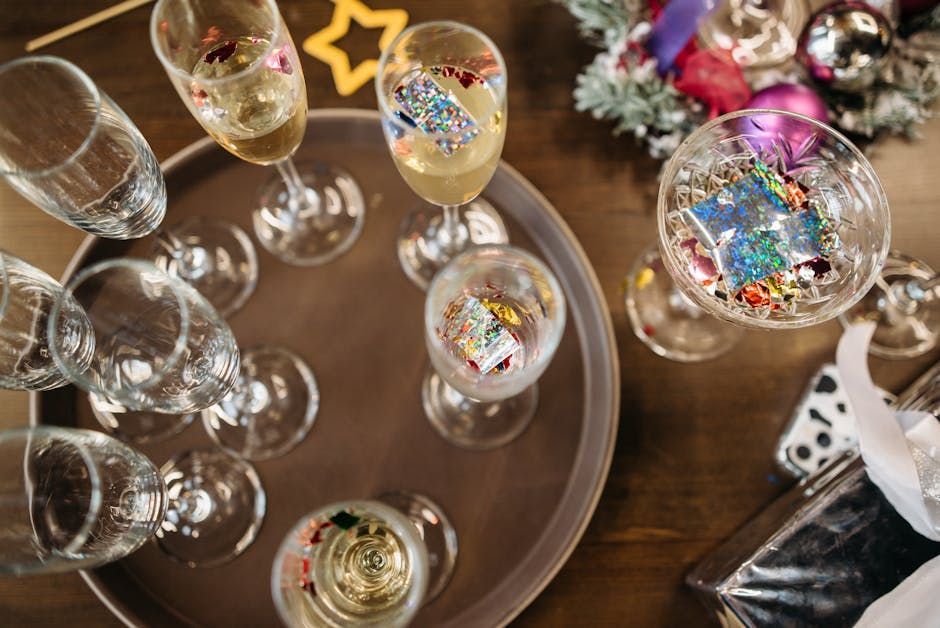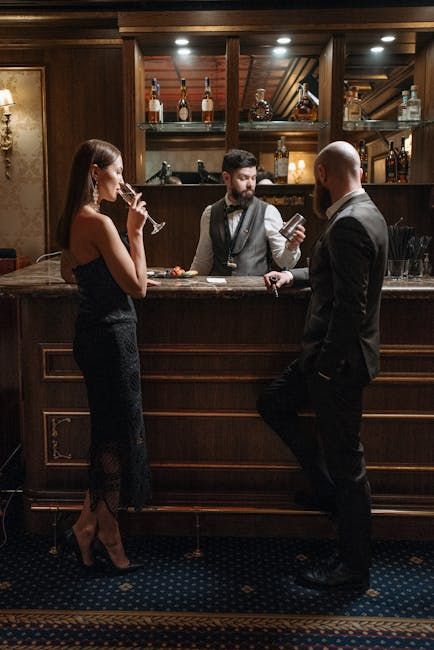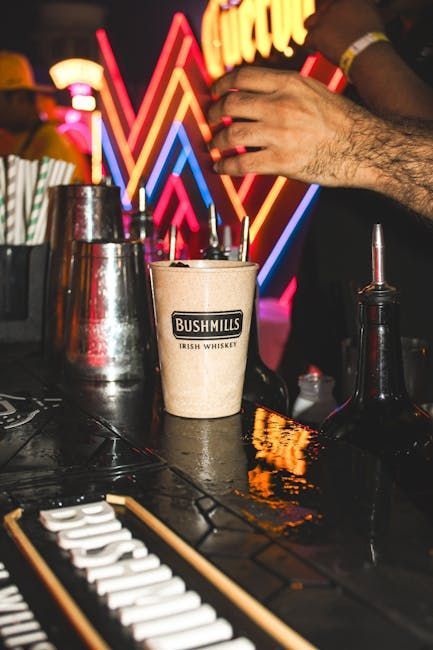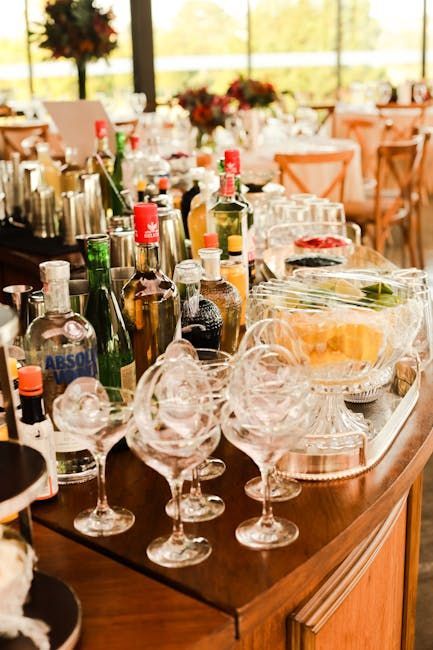The Art of Crafting Signature Mocktails: Why Non-Alcoholic Options Are Essential for Modern Events
The landscape of event planning has undergone a remarkable transformation in recent years, with one trend standing out as both progressive and necessary: the elevation of non-alcoholic beverage options. What once meant a pitcher of juice or soda sitting forgotten in the corner has evolved into a sophisticated craft where artisan mocktails command equal attention and appreciation as their alcoholic counterparts. This shift isn't just about accommodation; it represents a fundamental reimagining of inclusivity and hospitality at modern events.
As someone deeply immersed in the world of beverage service and event hospitality, I've witnessed firsthand how thoughtfully crafted non-alcoholic options transform the guest experience. The art of creating exceptional mocktails goes far beyond simply omitting alcohol from cocktail recipes. It requires understanding flavor profiles, mastering technique, sourcing quality ingredients, and approaching each creation with the same care and creativity applied to any craft beverage. Let me share why artisan mocktails have become essential for modern events and how they elevate celebrations for everyone involved.
Understanding the Growing Demand for Non-Alcoholic Options
The increasing prominence of mocktails at events reflects broader cultural shifts around wellness, mindfulness, and inclusivity. Multiple factors contribute to this growing demand, and understanding these motivations helps event hosts create truly welcoming environments that honor all their guests' preferences and needs.
Wellness culture has profoundly influenced how many people approach alcohol consumption. The sober curious movement, which encourages people to examine their relationship with alcohol and explore periods of sobriety, has gained significant traction particularly among younger adults. This isn't about judgment or restriction; it's about mindful choice and prioritizing physical and mental health. Many individuals now regularly alternate between alcoholic and non-alcoholic beverages or choose to abstain entirely during certain periods, seeking sophisticated drink options that align with their wellness goals without sacrificing social participation.
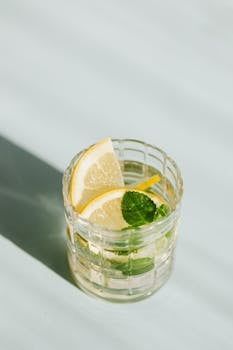
Health considerations extend beyond wellness trends. Pregnant guests, individuals taking medications that interact with alcohol, people managing chronic conditions, and those in recovery from addiction all benefit from having appealing non-alcoholic options. Traditional event beverage service often left these guests feeling like afterthoughts, relegated to water or sugary soft drinks while others enjoyed carefully crafted cocktails. This inadvertent exclusion diminishes the celebration experience for a significant portion of your guest list.
Religious and cultural practices also influence alcohol preferences. Many faiths discourage or prohibit alcohol consumption, and guests from these backgrounds deserve beverage options that honor their beliefs while allowing full participation in celebratory toasts and social rituals. Thoughtful mocktail offerings demonstrate cultural sensitivity and ensure these guests feel genuinely welcomed rather than merely tolerated.
Designated drivers represent another important group. Rather than punishing responsible choices with boring beverage options, exceptional mocktails reward and celebrate guests who prioritize safety. When the designated driver can enjoy a beautifully presented, delicious drink that rivals any cocktail in complexity and flavor, the role becomes less of a sacrifice and more of a valued contribution to the evening's success.
Personal preference increasingly drives beverage choices independent of any specific reason. Some guests simply prefer not to consume alcohol at certain events, whether due to early morning commitments the next day, professional considerations, or just personal taste. Modern hospitality recognizes that "I don't feel like drinking alcohol tonight" requires no justification and deserves the same quality of beverage service as any other preference.
The Art and Science of Mocktail Creation
Creating exceptional mocktails demands technical skill, creativity, and understanding of how flavors interact. The absence of alcohol presents both challenges and opportunities, requiring bartenders to think differently about balance, complexity, and presentation. This is where professional expertise truly shines, transforming simple ingredients into memorable beverages that surprise and delight.
Alcohol contributes specific characteristics to cocktails beyond intoxication. It provides body, carries flavors, adds warmth, and creates certain taste sensations that non-alcoholic ingredients must replicate through other means. Professional mocktail creators understand these elements and employ various techniques to achieve similar complexity and satisfaction in alcohol-free versions.
Fresh ingredients form the foundation of superior mocktails. Hand-pressed juices capture vibrant flavors that bottled versions cannot match. The difference between fresh citrus and concentrate becomes immediately apparent in the final product. Fresh herbs add aromatic complexity, whether muddled to release essential oils or used as aromatic garnishes that engage multiple senses. Seasonal fruits at peak ripeness contribute natural sweetness and acidity that artificial flavorings simply cannot replicate.
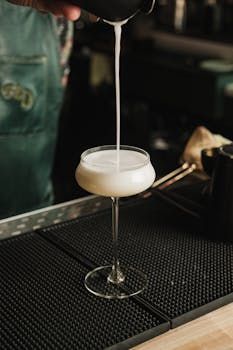
House-made syrups, shrubs, and infusions elevate mocktails from ordinary to extraordinary. Creating custom syrups allows precise control over sweetness levels and introduces unique flavor combinations. A lavender honey syrup, rosemary simple syrup, or ginger-turmeric infusion adds distinctive character impossible to achieve with commercial products. Shrubs, vinegar-based fruit syrups, provide tart complexity that mimics some of alcohol's palate-cleansing qualities while adding probiotic benefits. These components require time and skill to prepare properly, representing the kind of advance preparation that separates professional service from amateur efforts.
Texture plays a crucial role in mocktail satisfaction. Carbonation adds liveliness and refreshment. Many mocktails incorporate sparkling water, kombucha, or other effervescent elements to create mouthfeel interest. Egg white or aquafaba can be shaken into certain mocktails to create silky foam that adds luxurious texture and visual appeal. Ice considerations matter too; crushed ice creates different drinking experiences than large format cubes, and each has appropriate applications depending on the drink's composition and desired presentation.
Bitters and non-alcoholic spirits have revolutionized mocktail possibilities. While traditional bitters contain trace amounts of alcohol, several companies now produce truly non-alcoholic bitters that add aromatic complexity and slight bitterness that balances sweet elements. The emergence of sophisticated non-alcoholic spirits distilled from botanicals provides flavor depth previously unavailable. These products allow bartenders to create non-alcoholic versions of classic cocktails that maintain the spirit of the original while accommodating guests who avoid alcohol.
Presentation matters enormously in the mocktail experience. When a non-alcoholic drink arrives in a beautiful glass with thoughtful garnishes and elegant presentation, it signals that this beverage deserves equal respect and attention as any cocktail. Edible flowers, dehydrated citrus wheels, fresh herb sprigs, elaborate fruit arrangements, and creative glassware choices all contribute to the perception that this drink was crafted with care and intention. Professional bartenders understand that we taste first with our eyes, and mocktails that look extraordinary set positive expectations that influence the entire drinking experience.
Signature Mocktails That Tell Your Story
Just as custom cocktails can reflect personal narratives and event themes, signature mocktails offer opportunities for creative storytelling and meaningful connection. Developing unique non-alcoholic beverages specific to your event demonstrates thoughtfulness and creates memorable moments that guests appreciate and remember.
Seasonal inspiration provides natural starting points for mocktail development. Colorado's distinct seasons offer incredible ingredient opportunities. Spring brings fresh herbs like mint, basil, and cilantro perfect for bright, herbaceous drinks. Summer abundant with berries, stone fruits, and melons inspires refreshing, fruit-forward mocktails ideal for outdoor celebrations. Fall's apples, pears, and warming spices like cinnamon and cardamom create cozy beverages perfect for harvest-themed events. Winter citrus, pomegranate, and cranberries pair beautifully with rich flavors like vanilla and chocolate for holiday gatherings.
Personal meaning transforms a good mocktail into a conversation piece. Perhaps you name a drink after a beloved family member, creating a beverage that reflects their favorite flavors or personality traits. Maybe you design a mocktail inspired by a meaningful location, incorporating ingredients reminiscent of that place. Engagement stories, shared hobbies, or inside jokes can all inspire creative mocktail names and compositions that add layers of significance to your beverage menu.
Cultural heritage offers rich inspiration for signature mocktails. Traditional flavor combinations from family backgrounds can be reimagined in modern presentations. Mexican agua frescas become sophisticated mocktails with fresh fruit, herbs, and sparkling additions. Indian lassi transforms into an elegant drink with rosewater, cardamom, and beautiful presentation. Middle Eastern influences might inspire mocktails featuring orange blossom water, pomegranate, and mint. These culturally inspired drinks celebrate heritage while creating inclusive options that all guests can enjoy.
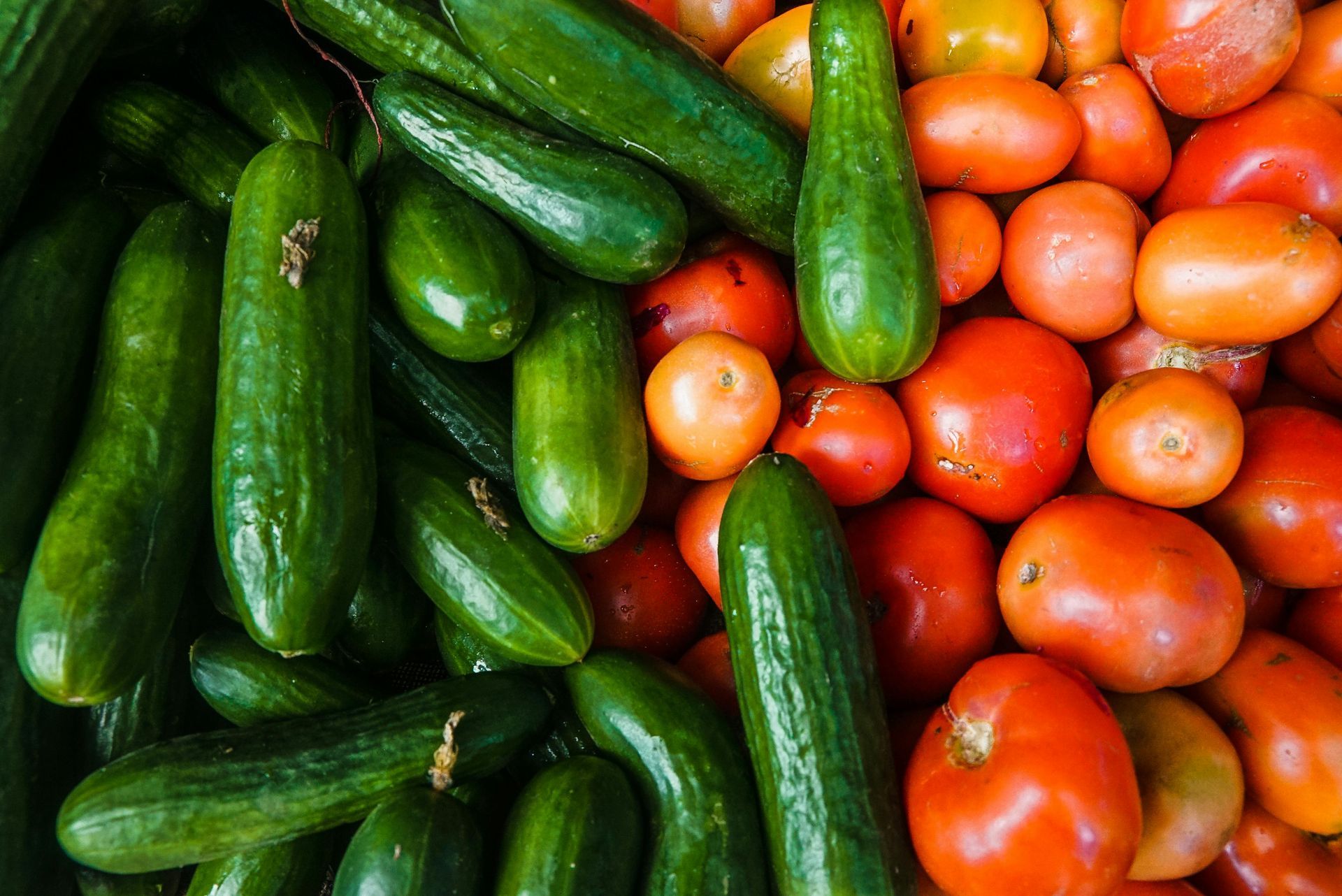
Thematic cohesion enhances your event's overall aesthetic when mocktails align with your chosen theme or color palette. Garden party events might feature floral mocktails with edible flowers and botanical garnishes. Rustic celebrations could showcase mocktails in mason jars with natural, unrefined presentations. Elegant formal events call for sophisticated mocktails in crystal glassware with refined garnishes. Beach or tropical themes inspire bright, fruity mocktails in fun glassware with playful presentations. This attention to thematic consistency demonstrates thoughtfulness that elevates the entire event experience.
Menu balance ensures your mocktail offerings appeal to diverse palate preferences. Including a range of flavor profiles guarantees every guest finds something appealing. Sweet mocktails satisfy those who enjoy dessert-like beverages. Tart or citrus-forward options appeal to guests preferring refreshing, bright flavors. Herbal or botanical mocktails attract people who appreciate complex, savory notes. Spicy mocktails with ginger, jalapeño, or other heat elements provide exciting alternatives for adventurous drinkers. This variety demonstrates the same thoughtfulness given to food menu planning, ensuring comprehensive guest satisfaction.
The Business Case for Exceptional Mocktails
Beyond ethical and hospitality considerations, compelling practical reasons support investing in quality mocktail service. Forward-thinking event hosts recognize that exceptional non-alcoholic options enhance rather than diminish their celebrations while potentially reducing costs and complications associated with alcohol-only service.
Guest satisfaction and comfort significantly improve when everyone has appealing beverage options. Guests who feel their preferences are respected and accommodated engage more fully in the celebration. They're more likely to stay longer, participate in activities, and create the lively, inclusive atmosphere that makes events memorable. Conversely, guests who feel overlooked or excluded tend to leave early or remain on the social periphery, diminishing the overall energy and success of your event.
Moderation and responsible consumption benefit from quality non-alcoholic alternatives. When guests have access to delicious mocktails, they're more likely to alternate between alcoholic and non-alcoholic drinks throughout the event. This natural pacing helps prevent overconsumption and its associated problems while extending the enjoyment period. Events with strong mocktail offerings typically experience fewer alcohol-related incidents, creating safer, more comfortable environments for everyone attending.
Cost considerations sometimes surprise people. While premium mocktail service requires investment in quality ingredients and skilled bartenders, the absence of expensive spirits can offset these costs. Additionally, insurance and liability concerns decrease when a significant portion of beverage service is non-alcoholic. Venue fees sometimes reduce when less alcohol is served, and transportation and accommodation concerns may decrease when fewer guests overconsume.
Social media appeal cannot be ignored in modern event planning. Beautiful, photogenic mocktails generate substantial social media engagement. Guests love photographing and sharing stunning beverages, providing free marketing and documentation of your event's success. Inclusive beverage service also generates positive buzz as guests appreciate and comment on the thoughtfulness. This organic promotion benefits both hosts and service providers while creating lasting digital memories of the celebration.
Environmental sustainability aligns with mocktail service in several ways. Non-alcoholic beverages typically have lower carbon footprints than spirits requiring distillation and long-distance transportation. Emphasizing fresh, local ingredients for mocktails supports regional agriculture and reduces transportation emissions. Many ingredients used in mocktail preparation, such as herbs and fruit, can be composted after use, minimizing waste. These environmental benefits appeal to eco-conscious hosts and guests who prioritize sustainability in their celebration choices.
Practical Implementation for Your Next Event
Understanding the value of artisan mocktails is one thing; successfully implementing them at your event requires planning, communication with your beverage service provider, and attention to detail. These practical considerations help ensure your non-alcoholic offerings receive the same care and success as any other element of your event.
Early planning proves essential for optimal mocktail service. Discuss non-alcoholic options with your beverage provider from your first consultation. Share information about your guest list composition, any specific needs or preferences you're aware of, and your overall vision for the event. This early dialogue allows sufficient time for menu development, ingredient sourcing, and preparation of custom components like house-made syrups or infusions.
Tasting sessions should include mocktails alongside cocktails. If you're sampling proposed alcoholic beverages, insist on tasting the non-alcoholic options as well. This ensures mocktails meet the same quality standards as cocktails and allows you to provide feedback and preferences. Professional providers welcome this input and use it to refine offerings until they perfectly match your vision and taste.
Menu presentation matters significantly. Rather than labeling drinks as "non-alcoholic" or "mocktails" which can feel stigmatizing, consider creative names that simply describe the beverages. List them alongside cocktails without special designation, allowing guests to choose based on appeal rather than alcohol content. This subtle approach normalizes non-alcoholic choices and eliminates any perceived hierarchy between drink options.
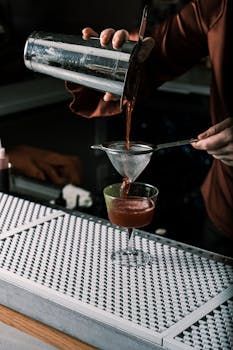
Quantity planning requires thought and communication. Discuss expected consumption patterns with your beverage service provider based on your guest demographics and event timing. Morning or early afternoon events typically see higher mocktail consumption than evening celebrations. Events with many young children, pregnant guests, or recovery community members need more robust non-alcoholic offerings. Professional providers use their experience to recommend appropriate quantities, but your insights about your specific guest list prove invaluable in accurate planning.
Service protocol should treat mocktails identically to cocktails. Bartenders should prepare them with the same care, serve them in equally beautiful glassware, and present them with the same enthusiasm. Guests ordering mocktails deserve the same friendly service and professional attention as those ordering cocktails. This equal treatment reinforces that all beverage choices are equally valid and valued.
Feedback mechanisms help improve service and demonstrate your commitment to guest satisfaction. Consider having someone check in with guests periodically to ensure beverage service meets their needs. This attention shows you care about everyone's experience and provides opportunities to adjust if issues arise. Post-event, consider sending follow-up surveys that specifically ask about beverage options, giving you valuable insights for future events.
Beyond Events: The Broader Mocktail Movement
The rise of artisan mocktails extends far beyond individual celebrations, reflecting and driving broader cultural shifts around hospitality, inclusivity, and how we gather and celebrate together. Understanding this larger context helps appreciate why thoughtful non-alcoholic beverage service matters so much in modern events.
Restaurant and bar culture has embraced mocktails as serious menu items rather than afterthoughts. High-end establishments now employ bartenders specifically to develop non-alcoholic beverage programs. Cocktail competitions include non-alcoholic categories. Industry publications regularly feature mocktail recipes and techniques. This professional legitimacy elevates the craft and creates trained practitioners who bring expertise to event service.
The wellness industry's intersection with hospitality continues evolving. Wellness retreats, yoga studios, and fitness centers increasingly offer sophisticated beverage experiences that align with their health-focused missions. Farmers markets and community events showcase non-alcoholic options prominently. This normalization in various contexts makes quality mocktails at private events feel natural and expected rather than unusual or accommodating.
Generational preferences show interesting patterns. Younger adults drink less alcohol than previous generations while demanding more sophisticated beverage experiences overall. They expect options, customization, and quality in all aspects of dining and celebration. This demographic shift ensures mocktails remain not just trendy but standard expectations for the foreseeable future. Event hosts who understand these preferences position their celebrations as contemporary and thoughtful.
Innovation continues driving the mocktail movement forward. New products constantly emerge, from improved non-alcoholic spirits to novel ingredients and preparation techniques. Bartending education now includes significant non-alcoholic content. Competition among beverage service providers pushes quality higher as excellence becomes expected rather than exceptional. This ongoing evolution means mocktails will only become more impressive and important in years to come.
Making Your Commitment to Inclusive Excellence
Choosing to prioritize artisan mocktails at your events represents more than a beverage decision. It reflects your values around inclusivity, hospitality, and creating environments where every guest feels genuinely welcomed and celebrated. This commitment enhances your event's success while contributing to broader cultural shifts toward more thoughtful, inclusive gatherings.
The investment in quality non-alcoholic options pays dividends in guest satisfaction, event atmosphere, and lasting memories. When guests feel their preferences are honored, when designated drivers are celebrated rather than merely accommodated, when wellness choices are supported, and when everyone can participate fully in toasts and celebrations regardless of their alcohol consumption choices, you create truly successful events that people remember fondly and discuss positively.
Professional beverage service providers who understand and prioritize mocktail excellence bring invaluable expertise to your planning process. They source quality ingredients, develop creative recipes, prepare custom components, and execute service with the professionalism and care that elevates your entire event. Their knowledge of techniques, flavor combinations, and presentation transforms your vision into reality while ensuring every guest enjoys exceptional beverages crafted specifically for your celebration.
As you plan your next event, whether an intimate gathering or large-scale celebration, challenge yourself to think creatively about non-alcoholic beverage service. Consider how signature mocktails might reflect your personal story or event theme. Think about the diverse needs and preferences within your guest list. Engage with beverage professionals who demonstrate genuine enthusiasm for both alcoholic and non-alcoholic offerings. Request tastings, ask questions, and collaborate on developing a comprehensive beverage menu that truly honors all your guests.
The art of crafting signature mocktails represents hospitality at its finest, demonstrating that true celebration includes everyone. When a pregnant friend raises a beautiful glass filled with a sophisticated, delicious beverage created with the same care as any cocktail, when a recovering alcoholic can participate fully in toasting without compromise, when a designated driver enjoys their drinks as much as anyone else, and when guests simply choosing not to drink alcohol that evening feel equally valued and celebrated, you've achieved something remarkable. You've created an environment where beverage service unites rather than divides, where every glass raised represents genuine inclusion, and where the art of hospitality truly shines. This is the power and promise of artisan mocktails, and this is why they've become essential for modern events that aspire to excellence, inclusivity, and memorable experiences for everyone in attendance.

